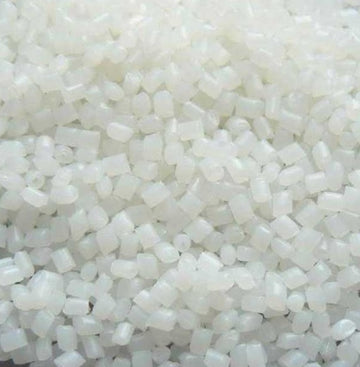
Recycled LDPE Pellets
Recycled LDPE (rLDPE) Pellets are made from post-consumer low-density polyethylene waste, such as plastic bags, wraps, and packaging. These eco-friendly pellets offer a sustainable alternative to virgin LDPE, providing excellent flexibility, strength, and performance for a variety of applications.
Ideal for use in packaging, film production, and consumer goods, our rLDPE pellets help businesses reduce their environmental impact while maintaining product quality. By choosing recycled LDPE, you contribute to a circular economy and promote responsible manufacturing practices.
Key Features:
- Made from 100% recycled LDPE
- Flexible, durable, and versatile for various applications
- Eco-friendly and cost-effective alternative to virgin LDPE
- Supports waste reduction and sustainable production
Choose Recycled LDPE Pellets for a greener, more sustainable future while upholding the quality and performance of your products.
FAQ
What are Recycled Pellets and how are they made?
Recycled pellets are made from post-consumer plastic waste, primarily plastic bottles and packaging. These materials are collected, cleaned, shredded, and then processed through a specialized system to remove contaminants and ensure high-quality production. The final product, r-pellets, is suitable for a variety of manufacturing processes, offering an eco-friendly alternative to virgin pellets.
What are the benefits of using Recycled Pellets?
Using recycled pellets offers several environmental and economic benefits. It reduces the amount of plastic waste sent to landfills, conserves natural resources, and lowers the carbon footprint compared to producing virgin pellets. Additionally, r-pellets maintain comparable strength, durability, and performance, making them an ideal choice for a wide range of applications, from packaging to textiles and automotive parts.
Can Recycled Pellets be used for all types of manufacturing processes?
Yes! Recycled pellets are highly versatile and can be used in most standard manufacturing processes such as injection molding, extrusion, blow molding, and thermoforming. They are commonly used in packaging, textiles, and consumer goods manufacturing, making them a flexible and sustainable material for various industries. However, it’s essential to ensure that the specific grade of r-pellets is suitable for your intended application.

